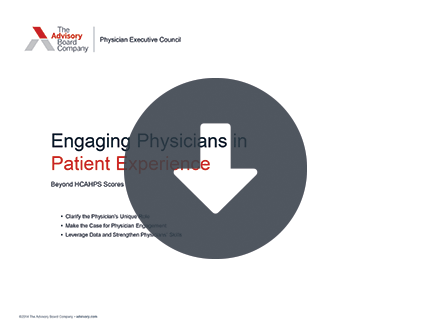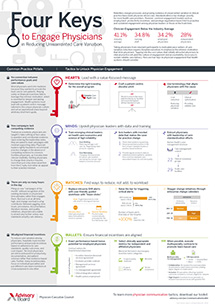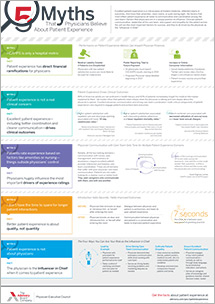Auto logout in seconds.
Continue LogoutMedscape in November released its 2018 Ethics Report, revealing doctors' thoughts on money, romance, ethical dilemmas, and more.
For the report, Medscape conducted a survey between July 27 and Sept. 30 that included responses from 5,250 physicians across more than 29 specialties. According to Medscape, 63% of the respondents were male and 37% were female. The report also includes anonymous quotations from the respondents.
Findings related to care decisions
When asked about care decisions, an overwhelming majority of respondents, 86%, said they would refer a patient to a physician outside of their respective health systems. However, one physician noted that when referring a patient to an external physician, it's important to "make it clear" that the patient could be out of network, "so the patient [isn't] surprised if they received a higher bill than expected."
The report noted that around two-thirds of respondents said they would not cherry-pick certain patients to avoid those with comorbid disease or those least likely to adhere to treatment regiments. An internist said cherry picking patients is "unethical," adding, "It is not what I got into medicine for."
However, 44% of plastic surgeons and 38% of orthopedic surgeons said they would cherry picky patients. One general surgeon said, "As a surgeon, you are judged on your outcomes, which may necessitate you to not operate on extremely high-risk patients from time to time."
Respondents were fairly evenly divided on whether they would ever prescribe a placebo to a patient who didn't need treatment but demanded to receive something, with 42% saying they would and 39% saying they wouldn't. An orthopedist said the practice "should be accepted … since placebo works in 30%-35% of research studies of drug management."
In addition, just 11% of respondents said they would perform a medically unwarranted procedure to avoid a potential malpractice actions. One family physician said, "A medically unwarranted treatment IS malpractice."
Findings related to insurance
Over two-thirds of respondents said they would deny a potentially effective treatment to a patient whose insurer won't pay for it, the report found. In addition, 38% of respondents said they would drop insurers that "pay poorly," even if it meant they would lose longtime patients. That number is down from 57% in Medscape's 2010 Ethics Report.
Just over half (57%) of respondents said they believe that patients who either engage in unhealthy behaviors or don't follow treatment recommendations should pay more for their insurance, according to the report—down from 69% in Medscape's 2014 ethics report. One oncologist said such patients "are contributing to their own and society's problems and consuming a disproportionate share of medical care."
The vast majority of respondents (78%) said it would never be warranted to overstate or upcode a patient's condition when submitting insurance claims or seeking prior authorization for a service or treatment. However, one family physician said, "The coding is often ambiguous," adding, "If I think a procedure or test is really needed, I will help the patient get it."
Findings related to relationships with patients, colleagues
According to the report, 2% of respondents said it would be acceptable to become romantically or sexually involved with current patients. The report also found that 25% of respondents—28% of whom identified as men and 19% of whom identified as women—said it would be acceptable to have a romantic or sexual relationship with a former patient at least six months to one year after the patient was no longer in their care.
One neurologist responded said, "People find love in all places. If it were to be a truly meaningful relationship, I don't see why someone shouldn't be able to start a relationship. I would think they would end the patient-doctor relationship by referring to a colleague."
When it came to physicians' relationships with their colleagues, more than 50% of respondents said they would tell a patient if he or she was about to have a procedure done by another physician with a substandard ability to perform the procedure. According to the report, 11% of respondents said they would not do so.
One family physician said if they had "hard data to support [their] opinion" about another provider's abilities, they would inform their patient that they "felt strongly that [the patient] might consider another opinion or provider."
In addition, the report found that 78% of respondents said they would report physicians whom they witnessed bullying or sexually harassing another provider. A family physician said, "Yes, my job is to be a healer. Preventing harm is part of what I do."
In comparison, 18% of respondents said whether they would report such behavior would "depend" on the situation, and 4% said they would not report such behavior. One internist said, "I reported my boss, and I faced repercussions for years. I suffered far more than he did."
Findings related to requirements for physicians
Respondents were split on whether physicians should be subjected to random alcohol or drug testing, with 39% saying doctors should be subject to such tests, and 42% saying they shouldn't. A critical care physician said doctors should be tested for substance use if they appear impaired on the job and should be subject to tests for illicit drugs. However, the respondent said physicians should not be tested to see whether they are using "[l]egal drugs or on [their] own free time."
According to the report, 69% of respondents said physicians should be required to get an annual flu shot if they have contact with patients, while 21% of respondents said physicians who have contact with patients should not be required to get flu shots, and 10% said it depends on the situation. One internist said, "Physicians should determine what's best for their own health, but if they refuse the vaccine and contract the flu, they should be obligated to refrain from seeing patients for a predetermined number of days in order not to spread the virus."
Physicians' 'toughest ethical dilemmas'
The report also highlighted some of the "toughest ethical dilemmas" respondents reported. Those included:
- "Having to balance the principles of medical practice as they were taught to me with the principles of managed health care as it was administratively placed before me";
- "Not being able to give blood to a Jehovah's Witness who died and would have otherwise survived"; and
- "Trying to convince a parent their child needed treatment for meningitis, when the parent wanted to try homeopathic treatments" (Kane, Medscape, 11/14).
5 myths physicians believe about patient experience
Excellent patient experience is a critical piece of modern medicine, reflected clearly in outcomes. And more than amenities, clean rooms, or quiet during night, the factors that most inflect patient experience all relate to communication and coordination among the care team—factors that physicians are in a unique position to influence.
Clinician-patient communication, leadership of the care team, and support and empathy for the patient across the unit are the most important factors for success, and they're all driven by the physician as the "Influencer in Chief."
Don't miss out on the latest Advisory Board insights
Create your free account to access 1 resource, including the latest research and webinars.
Want access without creating an account?
You have 1 free members-only resource remaining this month.
1 free members-only resources remaining
1 free members-only resources remaining
You've reached your limit of free insights
Become a member to access all of Advisory Board's resources, events, and experts
Never miss out on the latest innovative health care content tailored to you.
Benefits include:
You've reached your limit of free insights
Become a member to access all of Advisory Board's resources, events, and experts
Never miss out on the latest innovative health care content tailored to you.
Benefits include:
This content is available through your Curated Research partnership with Advisory Board. Click on ‘view this resource’ to read the full piece
Email ask@advisory.com to learn more
Click on ‘Become a Member’ to learn about the benefits of a Full-Access partnership with Advisory Board
Never miss out on the latest innovative health care content tailored to you.
Benefits Include:
This is for members only. Learn more.
Click on ‘Become a Member’ to learn about the benefits of a Full-Access partnership with Advisory Board
Never miss out on the latest innovative health care content tailored to you.




